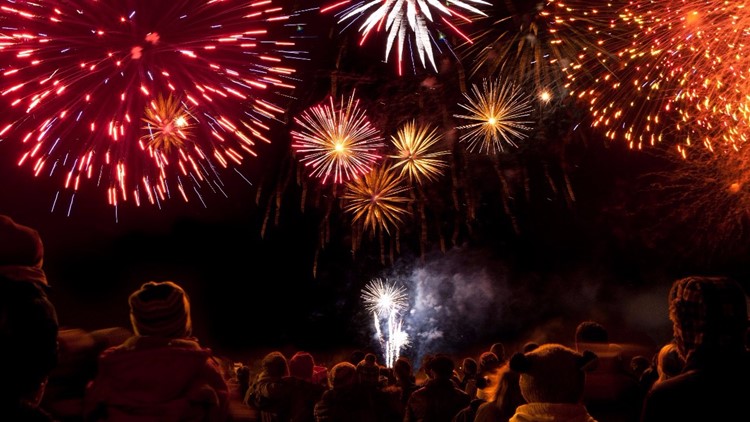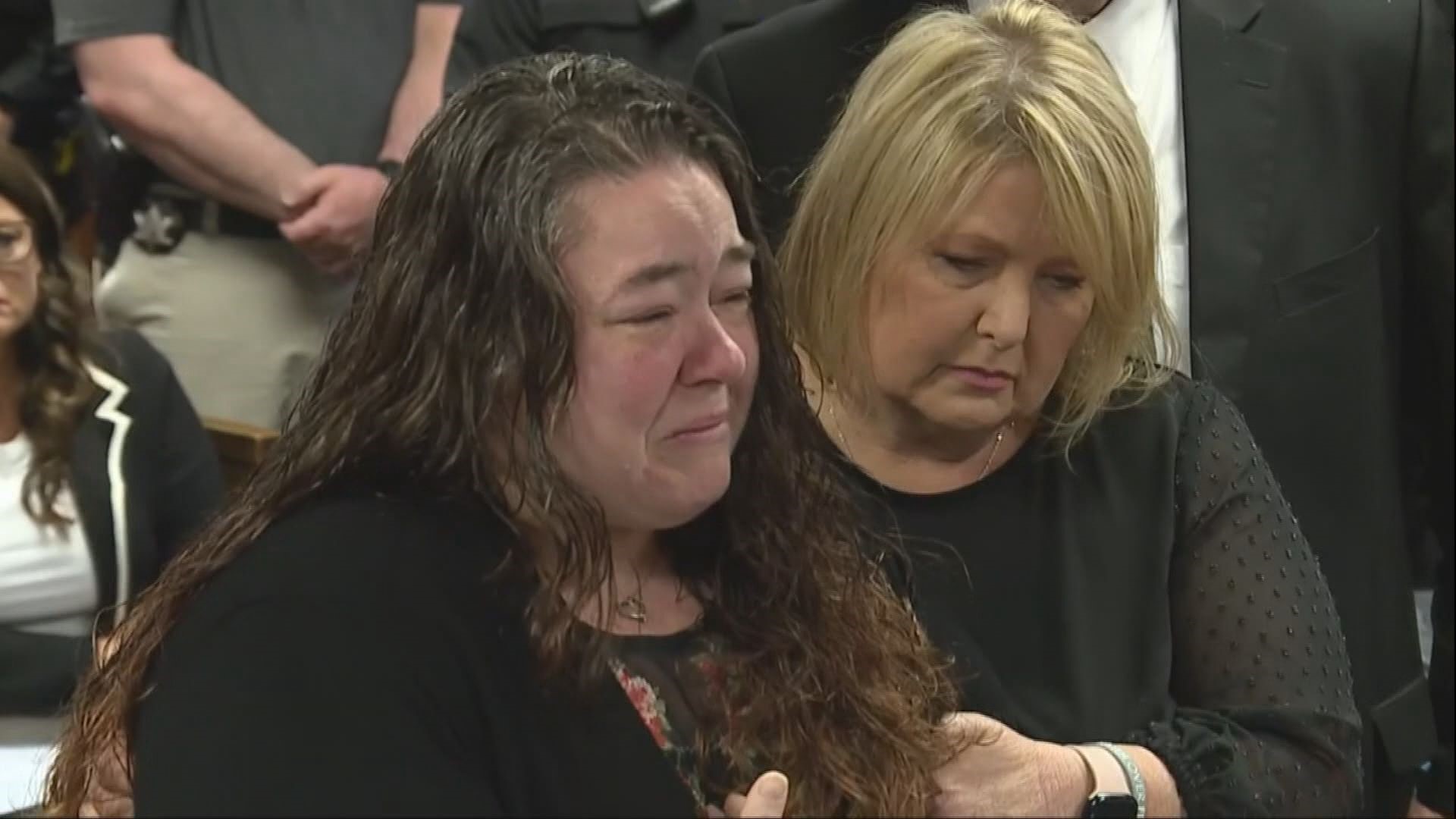Since 2012, when new fireworks laws went into effect and allowed Michigan residents to buy and ignite more powerful fireworks, some lawmakers have repeatedly tried to modify or repeal the laws.
Forty-one bills have been introduced toward that end in the last three legislative sessions. But none have even gotten a hearing.
“What I’m hoping to do is to bring more regulation and local control because we see a disproportionate impact in certain parts of the state,” said state Sen. Steven Bieda, D-Warren. “The profusion of sales has created a denser and louder holiday experience for many residents.”
Indeed, the first year that pop-up stores and tents started selling bottle rockets, Roman candles and other more powerful pyrotechnics, the governor’s office got more than 500 complaints following the Fourth of July holiday from people who had sleepless nights, crying babies, terrified dogs and who were traumatized by the incessant explosions.
The Legislature tweaked the bill in 2013 to allow local communities to restrict the time when fireworks could be shot off, prohibiting any displays between the hours of midnight and 8 a.m.
But that didn’t go far enough for some.
(Photo: Steve Bieda)
“We shouldn’t have to give up our houses for the Fourth of July because we’ve got a bunch of idiots in our neighborhoods,” said Michael O’Leary of Dearborn. “It starts about 5 in the evening and it runs through 2:30 in the morning and it’s one right after the other. They ought to be ashamed of themselves.”
Warren Mayor Jim Fouts said he has had consistent complaints, mostly about the incessant noise, since the law went into effect, and said that his city will start enforcing the law at 11 p.m. this year.
"I feel that midnight is unreasonable on part of the state to force people to stay up until midnight and beyond that, when many people have to get up and go to work the next day," Fouts said.
Fouts, who will be patrolling the streets with police and enforcing the law as he has on the Fourth of July in the past, said he hopes to see to the law either eliminated or drastically changed. Ever since the new state law, Fouts said, the fireworks have been louder, lasted longer, and been more lethal.
"Continually, I have residents say ‘I feel like I’m in a war zone, and I don’t want to be in a war zone. But I’m in a war zone.’ "
The bills introduced this year would:
- Expand the authority of local communities to regulate when fireworks could be used
- Repeal the law outright
- Prohibit the use of fireworks in densely populated areas
- Ban the use of sky lanterns
Rep. Martin Howrylak, R-Troy, would like to see the fireworks limited to the three days around the Fourth of July and New Year’s Day, instead of the three days around 10 designated holidays. He’d also like to see the bill tweaked to ensure that people under the age of 18 — who can’t buy the fireworks — also would be prohibited from using them.
He wishes the Legislature could acknowledge that different communities have different experiences with the high-powered fireworks.
“You can go in your yard in Clawson and you see 20 to 30 houses. But you can go Up North and not see a house at all,” he said. “Even the folks who like to use fireworks, like the ability for the city or township to set their own standards. I don’t think it’s realistic to repeal, but we have an opportunity to give the locals some more control.”
State Rep. Henry Yanez, D-Sterling Heights, thinks an outright repeal is the only way to go.
“As a retired firefighter, it’s not only physically dangerous, but actually can cause fires. It’s a nuisance and an annoyance. We have pets that are aggravated and scared and veterans with PTSD who have to leave their homes because of the noise,” he said. “My personal feeling is that this is an unnecessary nuisance that doesn’t really bring any benefit to the state.”
A MoveOn.org petition that calls upon Michigan lawmakers to "immediately repeal the Fireworks Safety Act 256 of 2011, and for the Governor to sign that repeal, in the interest of the safety and well-being of the citizens of Michigan" is about 3,000 signatures away from meeting its goal of 30,000.
Margaret Broersma, 64, of Grand Rapids signed the petition in September 2016, and wrote on the petition board about the "noise and danger" of the fireworks, and how it is "literally making people sick from lack of sleep and causing a great deal of anxiety in children."
In a conversation by phone, Broersma, whose son has partial hearing loss after an accident with fireworks in his early teens, explained that she has to comfort her cognitively impaired granddaughter, who gets anxiety when fireworks go off.
She said that it's not just on the Fourth of July that people are lighting fireworks.
"There were fireworks going off last night," she said. "I mean, it just happens all the time."
The petition, submitted by Brad Lang, ultimately calls for a "return to the time before 2011" and says that the change "is not worth the additional revenue."
But fireworks is big business in the state of Michigan. In the last three years, according to the state Licensing and Regulatory Affairs Department, there has been $89.6 million in fireworks sales that probably would have gone to neighboring states if the law hadn’t been passed. Those sales have generated more than $18.4 million in fees and tax revenues to the state since the bill went into effect in 2012.
(Photo: Rep. Howrylak’s website)
The money and the fact that the Legislature has already tweaked the original law make significant change unlikely anytime soon.
“At this time, I don’t have a tremendous amount of desire to make any changes,” said Rep. Brandt Iden, R-Oshtemo Township, the chairman of the House Regulatory Reform Committee, where the House-sponsored fireworks bills have landed. “Down in my neck of the woods in Kalamazoo, I haven’t heard from a lot of folks on this particular issue.”
He understands that people in more densely populated areas have a different experience, so he may be open to some technical fixes to the law. “But just a total rewrite of what we’ve done with fireworks, I’m not interested in doing that.”
In the Senate, the bills have been relegated to the Government Operations Committee, where bills go to either die or get moved quickly. This year, it’s more likely that the bills will die.
“I don’t expect us to do anything with those bills. It was just a few years ago that we addressed the issue and tried to resolve it,” said Amber McCann, spokeswoman for Senate Majority Leader Arlan Meekhof, R-West Olive. “There has been a tennis match on this issue, but we’re not looking to revisit the issue right now.”
Yanez and three other state lawmakers who have sponsored fireworks bills — Reps. Diana Farrington, R-Utica; Howrylak of Troy, and John Chirkun, D-Roseville — have written a letter to Iden, urging the committee chair to hold hearings on the bills.
“With the upcoming holiday, and the effects that fireworks can have on some of our most valuable residents, seniors and veterans, across the state, we respectfully request that you take up these bills for further consideration,” the letter stated.
Iden only promised one thing: Nothing will happen before the Fourth of July this year.
Absent action on the bills, Bieda has a more practical solution.
"Fireworks have always been a part of American tradition, but it’s kind of rude to set off fireworks at 11 at night," he said. "Maybe it could be something as simple as a public service announcement. It’s the law, but it’s also rude."
►Make it easy to keep up to date with more stories like this. Download the WZZM 13 app now.
Have a news tip? Email news@wzzm13.com, visit our Facebook page or Twitter.



